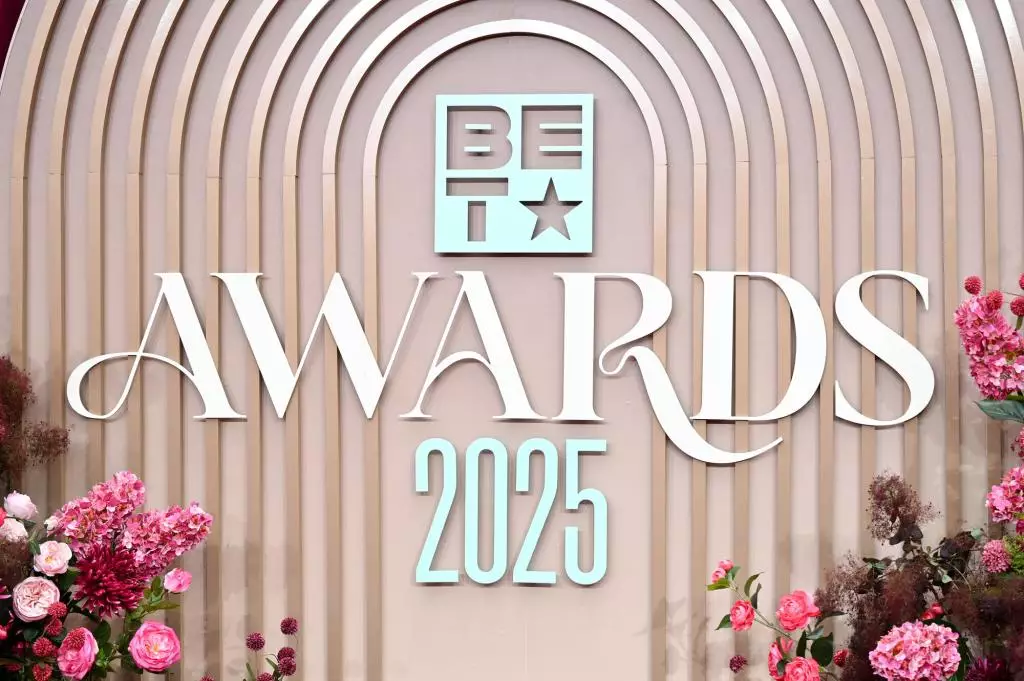The 2025 BET Awards heralds a milestone—a whopping 25 years of honoring Black excellence across music, television, film, and sports. While the ceremony, hosted by the ever-charismatic Kevin Hart, aims to uplift and celebrate the myriad achievements of Black artists, it’s essential to ask whether this glittering showcase truly reflects the broader struggles faced by the Black community in America. In a world increasingly aware of social justice movements and systemic inequalities, our celebrations must coincide with the responsibilities of acknowledging these harsh realities.
This year’s nominees saw Kendrick Lamar dominating the nomination landscape with an impressive ten nods—a testament not only to his artistic prowess but also a reflection of the cultural and social commentary embedded in his work. Yet, as we celebrate his achievements, we must remain critically aware of the societal context from which he arose. Lamar’s success isn’t merely a reflection of individual talent but of a larger tapestry of struggle, identity, and resilience that resonates with many Black Americans. The question remains: Are these accolades mere tokens or genuine acknowledgments of the fight for justice and representation?
Politics Erupting Amidst Entertainment
The juxtaposition of a star-studded event against a backdrop of protests in Los Angeles reveals an uncomfortable truth that can’t be ignored. As the ritzy Peacock Theater played host to performances from luminaries like GloRilla and Lil Wayne, the streets outside buzzed with discontent regarding ICE raids and increased policing. This dissonance highlights an urgent national conversation about immigration, racial equity, and policing that echoes within our communities yet is often sidelined in the name of celebration.
Awards like the BET Awards risk becoming superficial if divorced from the socio-political climate. As Doechii accepted her award for Best Female Hip Hop Artist, she fittingly seized the moment to denounce the actions of the government under Donald Trump’s administration. Her speech was a poignant reminder that the entertainment industry cannot isolate itself from the suffering and injustices that permeate society. If such platforms truly aim to uplift, they must confront the crises affecting their constituents head-on, rather than merely glossing over them during moments of jubilation.
A Celebration vs. A Protest: What’s the Balance?
As the BET community dances and celebrates another year of remarkable performances, it must also examine the role of these ceremonies in shaping the culture. This year’s awards witnessed stellar performances from artists like Mya, Teyana Taylor, and more, yet one cannot help but ponder the contradiction of such festivity amidst societal strife.
Are these moments of celebration effectively counterbalancing the reality of the struggles faced by everyday individuals in marginalized communities? The awards could potentially serve as a unifying space for the community, echoing the need for solidarity while simultaneously offering a platform for activism that resounds far beyond the theater’s walls.
The Future of BET: Adaptation or Stagnation?
With the BET Awards reaching this pivotal anniversary, it is essential to reflect on the future of the platform. Will the next iteration of the awards continue to elevate Black voices, or will it devolve into a commercial enterprise disconnected from the very principles that birthed it? This year’s nominees are breathtaking, featuring talent from Kendrick Lamar, Drake, and an array of emerging artists, yet the essence of the BET brand must evolve to remain relevant.
Moving forward, BET must strive not only to entertain but to educate and provoke thought, simultaneously celebrating Black cultural achievements while advocating for systemic change. Viewing the awards as more than just a night of glitz and glamour ensures they maintain a heartbeat that resonates with the struggles of those they honor.
While the BET Awards can shine a light on the beauty and brilliance that exists within the Black community, they must also serve as a catalyst for genuine dialogue, reflecting the realities we cannot afford to overlook. Only then can the celebration truly embody the spirit of those the awards aim to honor.


Leave a Reply